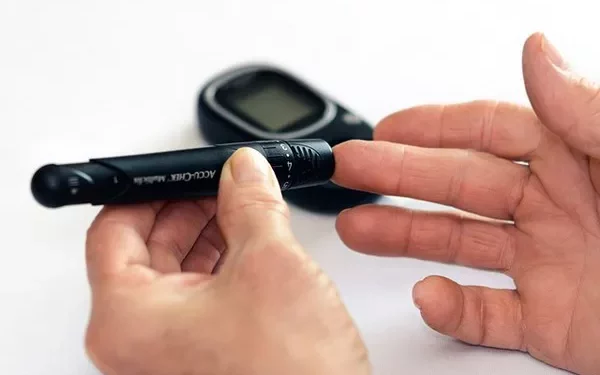Hyperglycemia, a term used frequently in the field of diabetes management, refers to an elevated level of glucose (sugar) in the blood. While glucose is essential for providing energy to the body’s cells, an excessive amount in the bloodstream can lead to a range of health complications, particularly for individuals with diabetes. Understanding the causes, symptoms, and management of hyperglycemia is crucial for those affected by diabetes or at risk for the condition. This article will explore the definition of hyperglycemia, its causes, the difference between hyperglycemia and hypoglycemia, how it is diagnosed, potential complications, and strategies for prevention and treatment.
Definition of Hyperglycemia
Hyperglycemia is defined as a condition in which blood glucose levels rise above the normal range. In non-diabetic individuals, normal fasting blood glucose levels typically range between 70 and 100 milligrams per deciliter (mg/dL). Postprandial (after a meal) blood sugar levels are generally below 140 mg/dL. Hyperglycemia is diagnosed when blood sugar levels consistently exceed these ranges.
For individuals with diabetes, the American Diabetes Association (ADA) defines hyperglycemia as:
- Fasting blood glucose level above 126 mg/dL, or
- Blood glucose level above 200 mg/dL two hours after eating.
Chronic hyperglycemia, if left uncontrolled, can damage various organs and tissues over time, leading to serious long-term health issues such as cardiovascular disease, kidney damage, nerve damage (neuropathy), and vision problems.
Causes of Hyperglycemia
Hyperglycemia can be triggered by a variety of factors. In the context of diabetes, the primary cause of hyperglycemia is either a lack of insulin or the body’s inability to effectively use insulin. Insulin is a hormone produced by the pancreas that allows glucose to enter the cells and be used for energy. In individuals with type 1 diabetes, the pancreas produces little to no insulin, while in individuals with type 2 diabetes, the body becomes resistant to insulin’s effects.
Several other factors can contribute to hyperglycemia in individuals with diabetes, including:
Poorly controlled diet: Eating too many carbohydrates or sugary foods can lead to spikes in blood glucose levels.
Missed doses of insulin or oral medications: Skipping medications or not adjusting insulin properly can result in high blood sugar.
Stress: Emotional or physical stress can trigger the release of stress hormones such as cortisol, which can increase blood glucose levels.
Illness or infection: Infections or other illnesses can cause blood sugar to rise, even in the absence of food intake.
Inactivity: A sedentary lifestyle can contribute to insulin resistance and higher blood glucose levels.
Medications: Certain medications, such as steroids and some diuretics, can cause blood glucose levels to rise.
Hyperglycemia can also occur in non-diabetic individuals under certain conditions. For example, stress, illness, or the use of specific medications can result in temporary elevations in blood sugar. However, hyperglycemia is most often associated with diabetes.
Symptoms of Hyperglycemia
The symptoms of hyperglycemia can vary depending on the severity of the blood sugar elevation and the duration of time it remains uncontrolled. Early symptoms of hyperglycemia include:
Increased thirst (polydipsia): The body attempts to dilute the excess sugar in the blood by increasing fluid intake.
Frequent urination (polyuria): The kidneys work harder to remove the excess glucose from the bloodstream by filtering it out through urine, resulting in increased urination.
Fatigue: High blood sugar can lead to feelings of exhaustion, as the body is not able to properly use glucose for energy.
Blurred vision: Elevated blood glucose levels can cause swelling in the lenses of the eyes, leading to temporary changes in vision.
Headaches: Persistent high blood sugar can cause headaches due to the body’s efforts to balance fluids and glucose levels.
If hyperglycemia is left untreated and blood sugar levels continue to rise, more severe symptoms can develop, including:
- Nausea and vomiting
- Shortness of breath
- Dry mouth
- Confusion or difficulty concentrating
- Fruity-smelling breath
These severe symptoms are often associated with a dangerous condition known as diabetic ketoacidosis (DKA) in individuals with type 1 diabetes or hyperosmolar hyperglycemic state (HHS) in individuals with type 2 diabetes. Both conditions require immediate medical attention.
Hyperglycemia vs. Hypoglycemia
It is important to distinguish between hyperglycemia and hypoglycemia, as they represent opposite extremes of blood glucose regulation. While hyperglycemia refers to elevated blood sugar levels, hypoglycemia refers to abnormally low blood sugar levels, typically below 70 mg/dL.
Hypoglycemia can occur when there is too much insulin in the body, either from over-administering insulin or from not consuming enough carbohydrates. Symptoms of hypoglycemia include shakiness, sweating, confusion, dizziness, and, in severe cases, loss of consciousness. Both hyperglycemia and hypoglycemia require careful management to prevent short-term and long-term complications, but they have opposite treatment approaches. Hyperglycemia is managed by reducing blood sugar levels, while hypoglycemia is treated by raising blood sugar levels through the intake of glucose or carbohydrates.
Diagnosis of Hyperglycemia
Hyperglycemia is diagnosed through blood tests that measure blood glucose levels. The most common tests include:
Fasting plasma glucose (FPG) test: Measures blood sugar levels after fasting for at least eight hours. A fasting blood glucose level of 126 mg/dL or higher indicates hyperglycemia.
Hemoglobin A1c (HbA1c) test: This test provides an average of blood sugar levels over the past two to three months. An HbA1c level of 6.5% or higher is indicative of diabetes and chronic hyperglycemia.
Oral glucose tolerance test (OGTT): This test measures blood glucose levels two hours after consuming a glucose-containing drink. A blood glucose level of 200 mg/dL or higher two hours after the drink indicates hyperglycemia.
Regular monitoring of blood sugar levels is essential for individuals with diabetes to detect hyperglycemia early and take appropriate actions to manage it.
Potential Complications of Hyperglycemia
If hyperglycemia is not properly managed, it can lead to a variety of acute and chronic complications, including:
1. Acute Complications
Diabetic Ketoacidosis (DKA): This life-threatening complication occurs primarily in individuals with type 1 diabetes when the body breaks down fat for energy, producing ketones as a byproduct. High levels of ketones in the blood make it acidic, leading to DKA. Symptoms include abdominal pain, vomiting, dehydration, confusion, and rapid breathing. DKA requires immediate medical intervention.
Hyperosmolar Hyperglycemic State (HHS): HHS is more common in individuals with type 2 diabetes and is characterized by extremely high blood glucose levels, often exceeding 600 mg/dL, without the presence of significant ketones. HHS can cause severe dehydration, confusion, and, if untreated, coma or death.
2. Chronic Complications
Prolonged hyperglycemia can damage various organs and systems in the body, leading to long-term complications such as:
Cardiovascular disease: High blood sugar damages blood vessels and increases the risk of heart attack, stroke, and atherosclerosis (hardening of the arteries).
Kidney disease (diabetic nephropathy): Chronic hyperglycemia can damage the kidneys’ filtering system, leading to kidney failure and the need for dialysis or a kidney transplant.
Nerve damage (diabetic neuropathy): Hyperglycemia damages nerves, particularly in the extremities, causing pain, tingling, numbness, and, in severe cases, amputation.
Vision problems (diabetic retinopathy): High blood sugar damages the blood vessels in the retina, leading to vision loss and an increased risk of blindness.
Foot problems: Poor circulation and nerve damage can lead to infections and ulcers in the feet, which may require amputation in severe cases.
Prevention and Management of Hyperglycemia
Preventing and managing hyperglycemia involves a combination of lifestyle changes, regular monitoring, and, in some cases, medication. Here are key strategies for managing blood sugar levels:
1. Dietary Management
Diet plays a crucial role in managing hyperglycemia. Individuals with diabetes should work with a healthcare provider or dietitian to develop a meal plan that focuses on:
Carbohydrate control: Monitoring carbohydrate intake and choosing complex carbohydrates with a low glycemic index can help prevent blood sugar spikes.
Balanced meals: Eating balanced meals that include a mix of protein, healthy fats, and fiber can help stabilize blood sugar levels.
Avoiding sugary foods: Foods and drinks high in added sugars, such as soda, candy, and baked goods, should be minimized to prevent hyperglycemia.
2. Physical Activity
Regular physical activity helps improve insulin sensitivity and can lower blood sugar levels. Incorporating aerobic exercises, such as walking or swimming, and resistance training into a weekly routine can help individuals manage hyperglycemia.
3. Medication
For individuals with diabetes, medication may be necessary to manage hyperglycemia. Common medications include:
Insulin: Individuals with type 1 diabetes and some individuals with type 2 diabetes may require insulin therapy to regulate blood sugar levels.
Oral medications: Medications such as metformin, sulfonylureas, and SGLT2 inhibitors can help lower blood glucose levels in individuals with type 2 diabetes.
4. Blood Glucose Monitoring
Regular monitoring of blood glucose levels is essential for detecting and managing hyperglycemia. Individuals with diabetes should check their blood sugar levels as directed by their healthcare provider, particularly before and after meals and during periods of stress or illness.
See also: How Does Excess Cortisol Cause Hyperglycemia?
Conclusion
Hyperglycemia is a common and potentially dangerous condition that occurs when blood glucose levels are too high. It can result from a variety of factors, including poor diet, missed medications, stress, illness, and inactivity. For individuals with diabetes, managing hyperglycemia is essential to preventing both short-term and long-term complications.
Related topics:
What to Do if Hyperglycemia Occurs

























